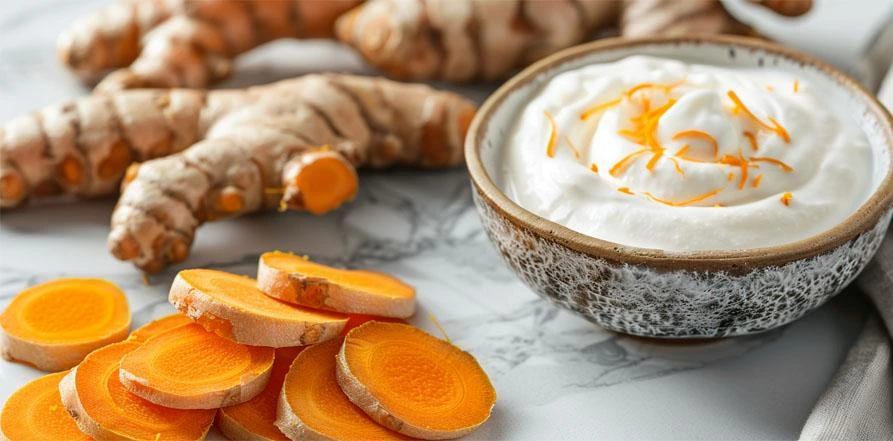On our recent trip to Israel, my wife Jen and I appreciated the abundance of healthful foods, including fresh pomegranate juice. Pomegranate juice is a popular beverage throughout the country, and everywhere we went, there were stands offering freshly prepared juice, either straight up or mixed with fresh orange juice. We looked forward to watching the vendors juice the ripe pomegranates, and then enjoyed sipping the delicious ruby red beverage.
Pomegranates (Punica granatum) are native to Persia (modern day Iran), and have been cultivated in the Mediterranean, Middle East and North Africa for centuries. Today, pomegranates are grown even in California. In various cultures, the pomegranate is a symbol of fruitfulness, abundance, fertility, knowledge, wisdom, and prosperity—probably because of the hundreds of jewel-like seeds contained within each fruit.
From ancient times, pomegranates have been used in religious ceremonies, and are mentioned numerous times in the Bible. In Israel, pomegranates were brought to Moses to prove the fertility of the Promised Land. Exodus 28:33-34 states that images of pomegranates be woven into the hem of the robe worn by the Hebrew High Priest. In the book of Kings, pomegranates are depicted on the capitals of the two pillars that stood in front of the temple King Solomon built in Jerusalem. King Solomon is likewise said to have designed his crown based on the “crown” of the pomegranate. The pomegranate also appears on the ancient coins of Judea, one of only a few images that appear as a holy symbol.
Pomegranates are also used in the Greek Orthodox tradition during memorial services, where they symbolize the resurrection and the hope of eternal life. In Christian art, the pomegranate is often held by the Christ Child in depictions of the Madonna and Child.
I’m always interested in the ancient uses and cultural and religious significance of plants. As an herbalist, I also appreciate the health benefits that plants offer to us. Pomegranates are unique in that they’re not only tasty, but are one of the healthiest foods we can choose to eat. The seeds contain a variety of health protective redox antioxidants, including polyphenols such as ellagitannins, ellagic acid, and proanthocyanidin compounds, as well as vitamins C and E, CoQ10, and lipoic acid. In fact, pomegranates appear to contain greater concentrations of antioxidants than other nutritional superstars such as red wine, blueberries, cranberries, and green tea.
Pomegranates in Israel:
The compounds found in pomegranates have the ability to induce healthy gene expression—in other words, the phytonutrients actually communicate with our genes, assisting them by reducing stress and instilling favorable gene behavior. As a result, pomegranate juice has been shown to have a wide variety of beneficial physiological effects, including improving blood flow to the heart, reducing blood pressure, lowering cholesterol, calming inflammation, and enhancing immune function. Pomegranates and pomegranate extracts have also been shown to be potentsuppressors of several forms of cancer at virtually every phase of tumor development.
Because of the numerous health benefits, I frequently prescribe pomegranate juice to my patients. Bottled pomegranate juice is readily available, but it’s often heavily sweetened and pasteurized. I much prefer the fresh juice. It’s easy to prepare: Using a glass citrus juicer, juice one pomegranate and one orange for a 4-6 ounce glass of juice. Pomegranates have a sweet, tart flavor—in general, the riper the pomegranate, the more naturally sweet it will be.
Fresh pomegranate seeds also make a tasty snack, and they’re delicious added to green salads or fruit salads. My kids love the seeds; Stella, at seven years old, can slice a pomegranate and remove the seeds on her own. The easiest (and least messy) way to seed a pomegranate is to slice off the top and score the sides of the fruit. Immerse the pomegranate in a bowl of cool water and gently pry it open. The seeds will fall to the bottom of the bowl; the seeds can then be strained out by pouring the liquid through a colander. Fresh pomegranate seeds will keep for several days in the refrigerator.
Some of the many health benefits of pomegranate juice include:
1) Normalization of blood pressure: inhibits serum angiotensin converting enzyme activity and reduces systolic blood pressure
(Atherosclerosis 2001;158:195-8; Complement Ther Clin Pract. 2011 May;17(2):113-5.)
2) Vascular protective: inhibits inflammatory actions of NF-kappaB in vascular endothelium (blood vessel lining)
(Atherosclerosis 2001 Sep;158(1):195-8.)
3) Reduces carotid artery wall thickness:
(Clin Nutr. 2004 Jun;23(3):423-33.)
4) Protects against atherosclerosis: reduces oxidative stress, low-density lipoprotein (LDL) aggregation and oxidation, and platelet clumping
(Br J Pharmacol. 2005 Jul;145(6):767-74; J Med Food. 2009 Apr;12(2):334-9.)
5) Significantly lowers total cholesterol and LDL levels:
(Int J Vitam Nutr Res. 2006 May;76(3):147-51; J Agric Food Chem. 2010 Feb 24;58(4):2180-7.)
6) Ameliorates metabolic syndrome, diabetes and obesity:
(Food Funct. 2013 Jan 19;4(1):19-39; Nutrition 28 (2012) 595–604.)
7) Dramatically reduces the incidence of cancer (prostate, breast and colon) and contributes to the management/control of cancer:
(Nutr Rev. 2010 Feb;68(2):122-8; J Agric Food Chem. 2008 Sep 24;56(18):8434-41; Chem Biol Interact. 2008 Jan 30;171(2):122-32; Breast Cancer Research & Treatment 71(3):203-17, 2002 Feb.)
8) Protects against prostate cancer: significantly inhibits cancer and reduces distant tumor formation
(Nutr Cancer 2009;61(6):811-5; J Med Food 2004;7(3):274-83; Invest New Drugs 2005 Mar;23(2):121-2; J Ethnopharmacol. 2007 Jan 19;109(2):177-206; Int J Oncol. 2008 Feb;32(2):475-80; Evid Based Complement Alternat Med. 2013;2013:247504.)
9) Helps prevent gum disease:inhibits bacterial adherence and prevents growth of bacteria more effectively than the standard medical drugs used
(Braz Dent J. 2006;17(3):223-7; J Int Acad Periodontol. 2003 Oct;5(4):106-15; J Herb Pharmacother. 2006;6(2):79-92.)
10) Neuroprotective: slows age-related degeneration and neurodegeneration in particular
(Oxid Med Cell Longev. 2013;2013:685909.)











